The Turtles’ Mark Volman Reveals Lewy Body Dementia Diagnosis: 'I Want the Most Out of Every Day' (Exclusive)
The “Happy Together” singer is still touring and living a full life despite coping with the disease, the same illness Robin Williams had before his death
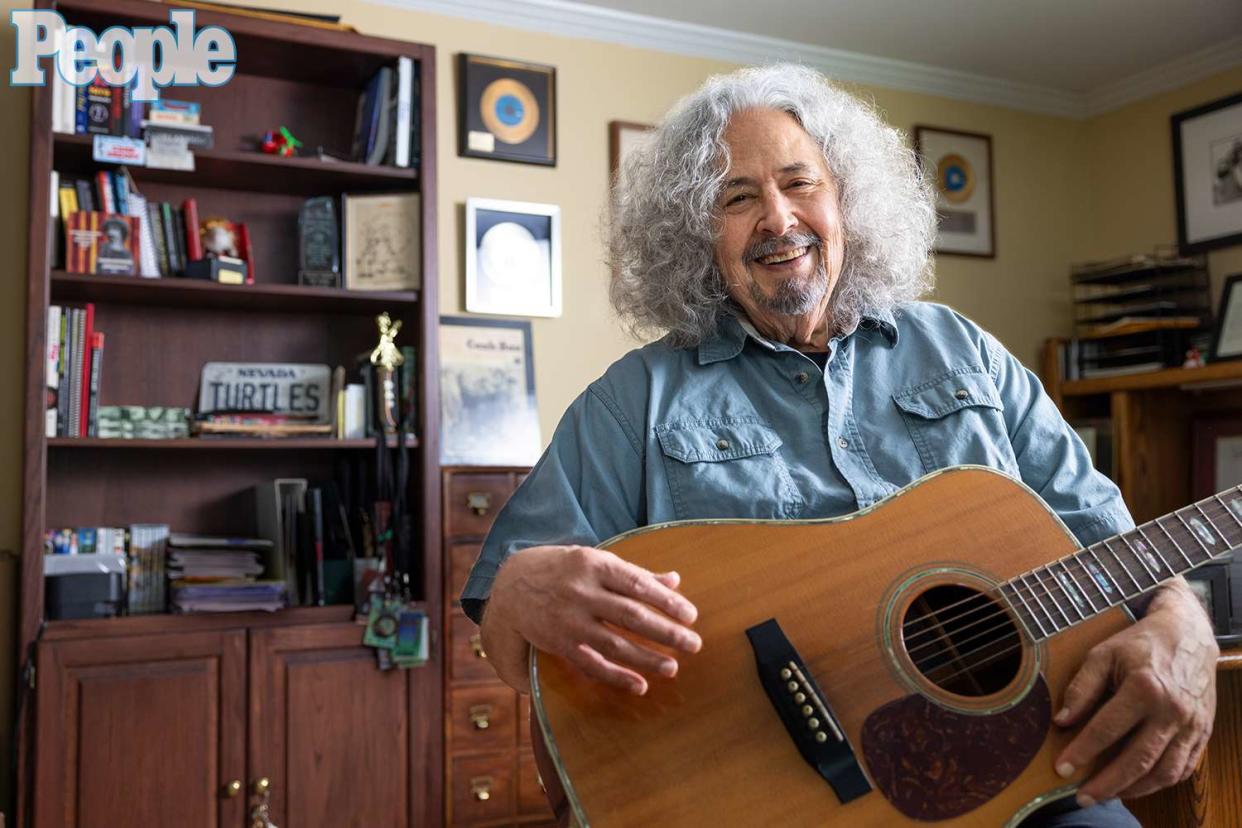
Hollis Bennett
Mark Volman photographed for People at home on May 25, 2023 in Franklin, TN.The Turtles’ founding member Mark Volman, 76, is opening up for the first time about his diagnosis with Lewy Body Dementia in an exclusive story in this week’s issue of PEOPLE. The “Happy Together” singer learned he had the progressive neurological disorder in 2020 after experiencing hallucinations, tremors and struggles with concentration. But with a new book out and a tour, Volman is continuing to live a full life despite the devastating disease, the same illness that Ted Turner and Robin Williams were diagnosed with.
At his home outside Nashville, Mark Volman pauses for a moment to examine a red floral sofa across the room. “Do you see a woman with her head bleeding?” he asks, eyeing the sofa. No, he’s told, it’s just a couch.
Volman, a founding member of the ’60s rock band The Turtles, has a history with this particular piece of furniture: During the isolation of the pandemic, his mind began to distort the crimson floral pattern into the alarming vision he’s just seen. To obscure the design that triggers the illusion, the sofa is usually hidden under a plain duvet cover. But on this day, for a PEOPLE photo shoot, the duvet cover has been removed, and the “woman” has reappeared. Volman wants to make certain she isn’t real. “You don’t see the woman with her head bleeding?” he says again. No, he’s reassured. “Okay,” he says, matter-of-factly, and then returns to posing for the camera.
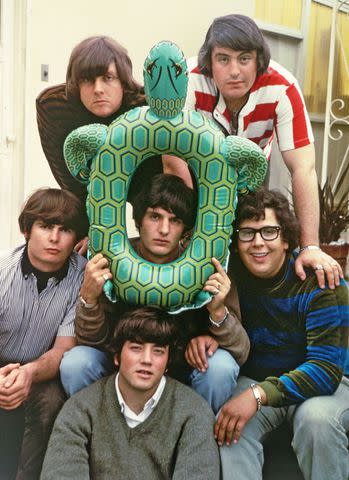
Alamy
The Turtles (with Mark Volman, bottom right) had a string of hits in the '60s, including "Happy Together"Volman’s hallucination is a hallmark symptom of a form of Lewy Body Dementia (LBD), a progressive brain disorder that affects thinking, memory and movement. The second-most common form of degenerative dementia after Alzheimer’s, LBD affects an estimated 1.4 million people in the U.S. and is caused by a buildup of clumps of protein (known as Lewy bodies) in nerve cells in the brain. Volman’s form of the disease, dementia with Lewy bodies, “easily mimics other diseases,” including Alzheimer’s, says Kristen Pilote, an adult and gerontology acute-care nurse practitioner at Vanderbilt University Medical Center who treats Volman.
Since his diagnosis in 2020, Volman has been learning to live with the challenges of the disease, including fluctuations in cognitive ability and awareness, visual hallucinations, disturbed REM sleep disorder and tremors and Parkinson-like movement symptoms. He also knows that what’s ahead will be even more difficult. Over time, the effects of the disease will progress into a “slow decline that will eventually interfere with his ability to function,” says Pilote, who specializes in cognitive neurology.
But Volman says he’s choosing to accept it as an unexpected next chapter. “I got hit by the knowledge that this was going to create a whole new part of my life. And I said, ‘Okay, whatever’s going to happen will happen, but I’ll go as far as I can.’ ”
Volman began his musical career in Los Angeles with that same sort of optimism. In 1963 he joined high school classmate Howard Kaylan’s band the Crossfires as a roadie, but his harmonizing talents soon elevated him to what he calls “second banana” status in the group. Renamed the Turtles, the band had its first Top 10 hit in 1965 with a version of Bob Dylan’s “It Ain’t Me Babe.”
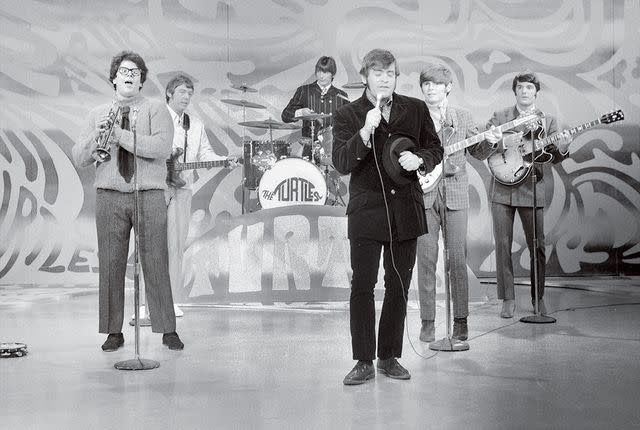
CBS via Getty
The Turtles performing on The Ed Sullivan Show in 1967Several hits followed, including their trademark, “Happy Together,” which in 1967 knocked the Beatles’ “Penny Lane” off the top slot. With his mass of curly hair, wide grin and infectious tambourine-twirling energy, Volman was a standout.
In 1970, however, not long after playing a show at the White House for President Richard Nixon’s daughter Tricia (they were her favorite band), the Turtles broke up amid a dispute with their record company, and Volman and Kaylan began performing as the duo Flo & Eddie, joining Frank Zappa's band the Mothers of Invention and appearing on albums for artists as varied as Alice Cooper, T. Rex and Duran Duran.
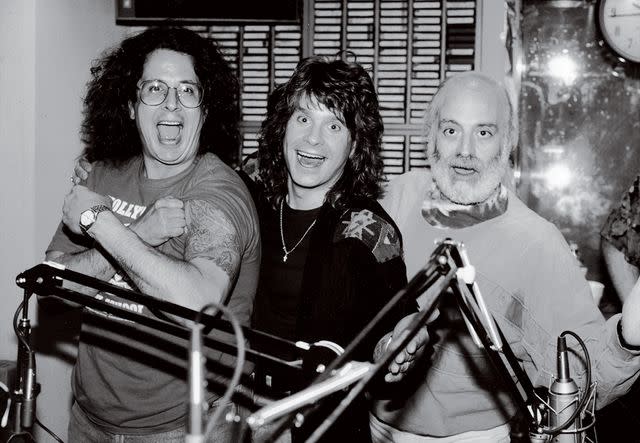
Courtesy Mark Volman
Mark Volman and Howard Kaylan, a.ka. Flo & Eddie, with Ozzy Osbourne for their radio show.The memories of those heady days, partying with John Lennon and Jimi Hendrix, singing with Bruce Springsteen and Bono, are chronicled in his new memoir Happy Forever, out June 20. “It all sounds like a dream now,” Volman says. “I’m just a groupie at heart.”

The musician’s career took another surprising turn when he went back to school in his 40s and graduated from Loyola Marymount University with a master’s in screenwriting in 1999. By 2018 he was on the faculty of Belmont University in Nashville heading a music business program, when he found himself struggling to get through his lectures. “I remember slurring, and I wasn’t sure what was going on,” he says. “My brain wandered. I’d go off track. It made no sense.”
Within the next two years the hallucinations began. He’d see Civil War soldiers in the field near his house. Faces would appear in the outlines of furniture and appliances. He began experiencing tremors. When performing Turtles tunes on tour one year, “I heard a lady say, ‘His hand’s shaking,’” he recalls. In April 2020 he was diagnosed with LBD, which provided some answers but raised terrifying new questions. “The only person I knew related to the disease was Robin Williams — and he’s dead,” says Volman. (The actor died by suicide in 2014 after suffering painful physical and emotional symptoms of the disease for years.)
RELATED: How Bruce Willis' Family Is Helping Him 'Live as Full a Life as Possible' After Dementia Diagnosis
Inevitably LBD patients will face a future in which they will lose the ability to care for themselves; studies have shown that patients typically live eight years post-diagnosis. “But Mark is an exception — he’s a great example of resilience in the setting of a debilitating illness,” his nurse Pilote says. “He’s upbeat and charismatic, and he’s surrounded by people who care about him.”
Improbably, those people include his two ex-wives, who both live within a few miles of Volman and who, along with his two grown daughters, help him daily. “He gets anxious at times — like any grieving process, it ebbs and flows,” says Emily Volman, who was married to Mark for 15 years, until 2015. “But he’s a ‘live for today’ person.”
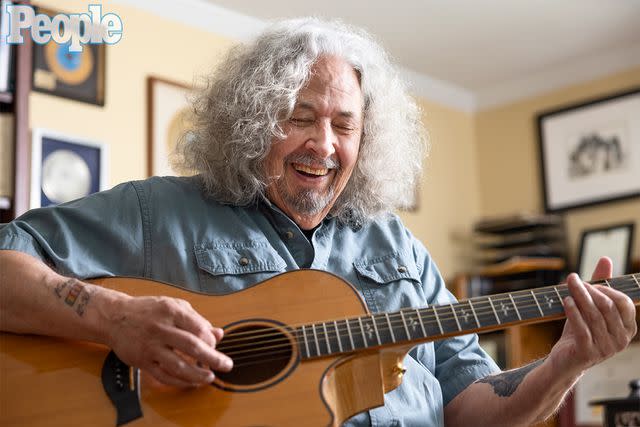
Hollis Bennett
Mark Volman photographed for People at home in May.On medication to help control his tremors and hallucinations (“Mark has remarkable self-awareness of those, which has been helpful in his quality of life,” Pilote says), Volman is devoted to daily exercise. “We call him the mayor of the Y,” says Emily. He visits the YMCA daily for circuit training, boxing classes and to walk.
Those workouts have helped him prepare for going on the road again with the Happy Together tour, an annual ’60s music fest that Volman and The Turtles (minus Kaylan, who has stopped touring due to health issues) headline. He travels by bus because, he says, “it’s the safest place for me to be. I can’t get lost or hurt.” On a trip to Macy’s for a new mattress he did wander off. “My daughters were thoughtful about not leaving me in the store,” he jokes. “I heard them going, ‘Dad!’ ”
He seizes upon the moments when he can laugh at himself, even though he’s aware of difficult days to come. “Right now, for me, it’s not scary, although it probably should be,” Volman says.
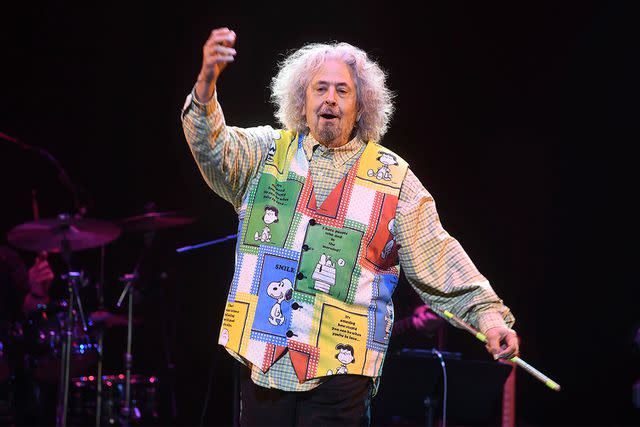
Bobby Bank/Getty
Volman performing on the Happy Together tour in 2022.Being on the road is demanding, even for young musicians with no health issues, but, Volman, who has been on tour since May, says performing “has been tremendous.” And staying active can benefit patients with LBD, Pilote says. “Living with dementia with Lewy bodies, you still have to live,” she says. “It's important to engage in the things you enjoy, optimize your strengths, spend time doing the things you love with the people you love. And Mark is an excellent example of that. He's continued to live despite this diagnosis.”
And Volman says he doesn’t plan to stop. “The challenges of this world affect everybody, and it’s been kind of fun being on the other side of a challenge like this and saying, ‘I feel good.’ My friends are here. I’m still here. And I want people to connect with me.”
For more People news, make sure to sign up for our newsletter!
Read the original article on People.

 Yahoo News
Yahoo News 
